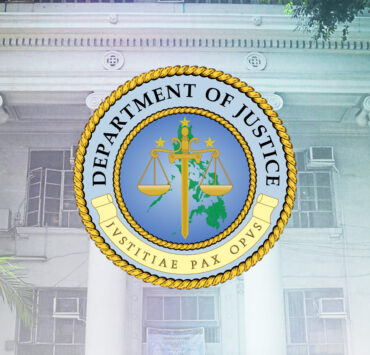Pasig court junks antidummy case vs Rappler execs

A Pasig City court has dismissed the antidummy case filed against Nobel laureate and Rappler CEO Maria Ressa and five other executives of the online news site due to “grossly insufficient” evidence.
In its June 13 decision made public on Thursday, Pasig City Regional Trial Court Branch 152 Presiding Judge Marie Joyce Manongsong granted the demurrers to evidence filed by the six accused, who argued that the case should be dismissed “for failure of the prosecution to prove their guilt beyond reasonable doubt.”
The five other accused were former board directors James Velasquez, Manuel Ayala, Nico Jose Noledo and Felicia Atienza, and Rappler executive editor Glenda Gloria.
Omidyar
In 2019, the group was charged with violating Section 2-A of Commonwealth Act No. 108, or the antidummy law, for issuing 7,217,257 Philippine depositary receipts (PDRs) to a foreign corporation, Omidyar Network Inc.
This allegedly gave Omidyar the right to intervene in the control and management of Rappler and its controlling shareholder, Rappler Holdings Corp. Inc. (RHCI), which owns 98.77 percent of the shares in the media outfit as of July 31, 2015.
Prior to the case, the Securities and Exchange Commission (SEC) in 2018 ordered the revocation of Rappler’s license to operate as well as the registration of RHCI, supposedly for using “deception” in order to circumvent a provision in the Constitution that mandates 100-percent Filipino ownership of mass media.
This decision, however, was overturned by the Court of Appeals (CA) last year, saying that the mere violation of the use of PDRs does not “warrant the obliteration of a mass media entity.”
PDRs are financial instruments that grant the holder the right to the delivery or sale of an underlying share, but are not considered as evidence, statements or certificates of ownership of a corporation.
In the 11-page decision by Manongsong, the Pasig court “finds that the prosecution’s evidence is grossly insufficient to establish the criminal liability of all of the accused by proof beyond reasonable doubt.”
“At the outset, the 2018 SEC Decision itself does not clearly establish the individual roles of each of the accused in the transfer of PDRs to Omidyar,” Manongsong said.
“[I]n the instant criminal case against each of the accused, the prosecution simply adopted the SEC findings in the administrative case and failed to provide evidentiary support to the supposed specific acts of each of the accused that led to the issuance of the PDRs to Omidyar,” she added.
Among the issues cited in the decision was the lack of proof regarding the alleged negotiations between Ressa, as representative of Rappler and RHCI, and Omidyar.
Unproven conspiracy
The SEC decision also showed that not all accused are directors of RHCI, with Atienza and Velasquez being directors of Rappler only. Only Ressa and Bitanga were common officers of Rappler and RHCI.
“Likewise, the prosecution failed to submit any board resolution, corporate record or any other piece of evidence clearly establishing the involvement of each of the accused in the issuance of PDRs to Omidyar,” Manongsong said.
“[I]n the absence of showing of the specific involvement of each accused, this Court entertains doubts on whether all of them indeed conspired to facilitate or allow the transfer of PDRs to Omidyar,” she added.
Manongsong said that while conspiracy “need not be established by direct evidence,” it has to be proven “by clear and convincing evidence showing a series of acts done by each of the accused in concert and in pursuance of a common unlawful purpose.”
Aside from this, the court also found that the prosecution failed to prove that Omidyar gained some control over Rappler and RHCI with the transfer of PDRs.
Conclusion inadequate
According to the Pasig court decision, the SEC had concluded that a paragraph in the PDRs constituted a violation of foreign equity restrictions. Paragraph 12.2.2 of the PDR stated that Rappler could not “alter, modify or otherwise change” the Company Articles of Incorporation or By-Laws without the approval of Omidyar.
The court, however, found this conclusion inadequate for a criminal conviction.
Manongsong also took note of the CA ruling, which explained that the issuance of PDRs “did not give beneficial ownership to Omidyar” as it did not grant the foreign company the right to buy RHCI shares.
“Other than what the SEC concluded, there is no separate document or any evidence on record clearly showing the nexus between each of the accused and the transfer of PDRs to Omidyar,” she said.
“There is also no sufficient evidence establishing the transfer of Rappler and RHCI’s privilege or franchise to Omidyar.”

















